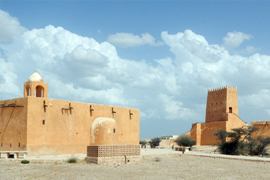
You will be picked up from Doha by our well experienced and professional 4x4 wheel desert drivers. You will be drove from Doha to Messaid on the tarmac..

We will start the journey from Doha to the fishing area on our Speed boat with a very well experienced boat Captain who will take you to best...

You will be picked from your hotel and Drive around the Cornish and view the old Dhow Harbor. Then you will Visit Qatar Museum of Islamic Art,...

You will be picked up from Doha and taken to The museum of Islamic Arts, which you can witness houses manuscripts, textiles, ceramics and other works..
Falcon Tours is a professional tour operator handling individual and group guided tour arrangements. We offer tours all over Qatar, Falcon Tours has consistently provided the ultimate touring experience and always focused on the travelers’ budget. Whether it's a city tour, culture and history tours, desert with an outback safari, Arabian Dhow Cruise or fishing trips – we have the perfect package for your visit.

The history of Qatar spans from its first duration of human occupation to its formation as a modern state. Human occupation of Qatar dates back to 50,000 years ago, and Stone Age encampments and tools have been unearthed in the peninsula.

The culture of Qatar is strongly influenced by traditional Bedouin culture, with less acute influence deriving from India, East Africa and elsewhere in the Persian Gulf. The peninsula's harsh climatic conditions compelled its inhabitants to turn to the sea for sustenance.

However, the law prohibits proselytizing by non-Muslims and places some restrictions on public worship. The state religion is Islam. While most Qataris are Sunni, Shi'a Muslims freely practice their faith.

Natives of the Arabian Peninsula, many Qataris are descended from a number of migratory tribes that came to Qatar in the 18th century to escape the harsh conditions of the neighboring areas of Nejd and Al-Hasa.

Qatar is a peninsular Arab country whose terrain comprises arid desert and a long Persian Gulf shoreline of beaches and dunes. Also on the coast is the capital, Doha, known for its futuristic skyscrapers and other ultramodern architecture inspired by ancient Islamic design, such as the limestone Museum of Islamic Art.

UTC - GMT Offset ---Qatar is GMT/UTC + 3h during Standard Time